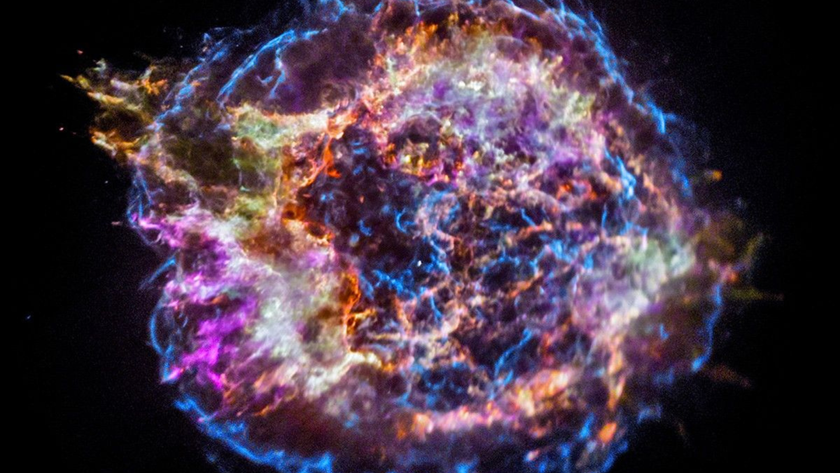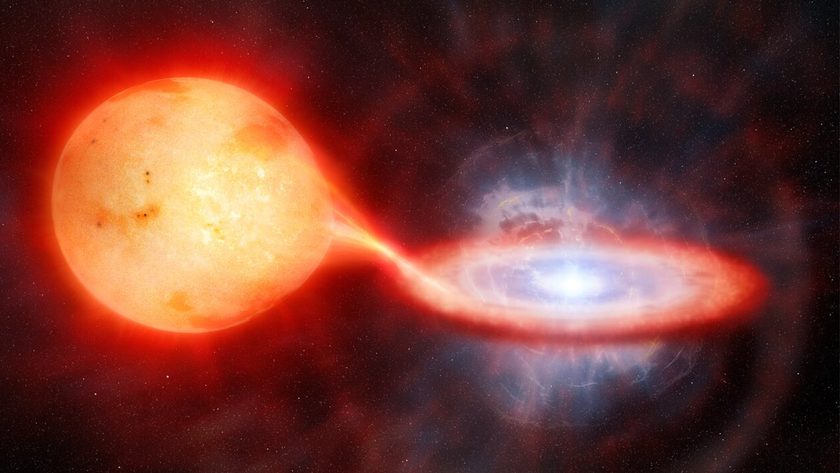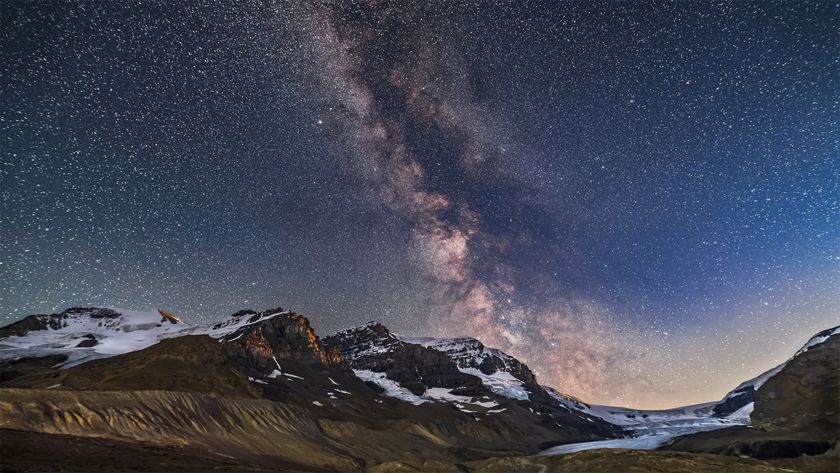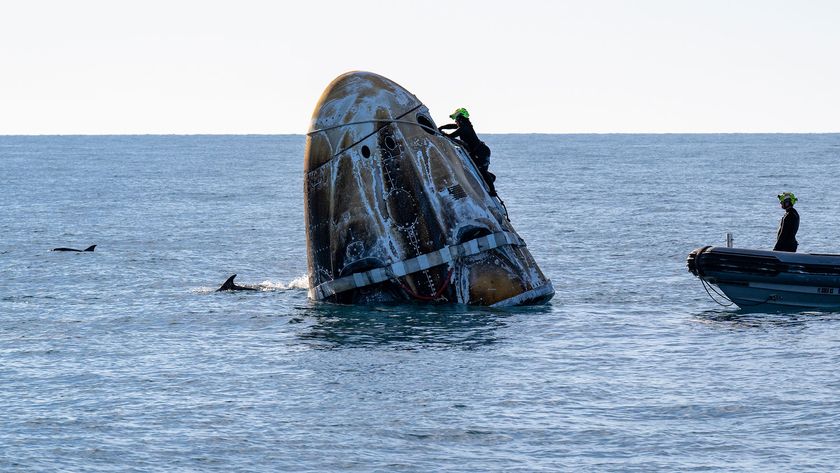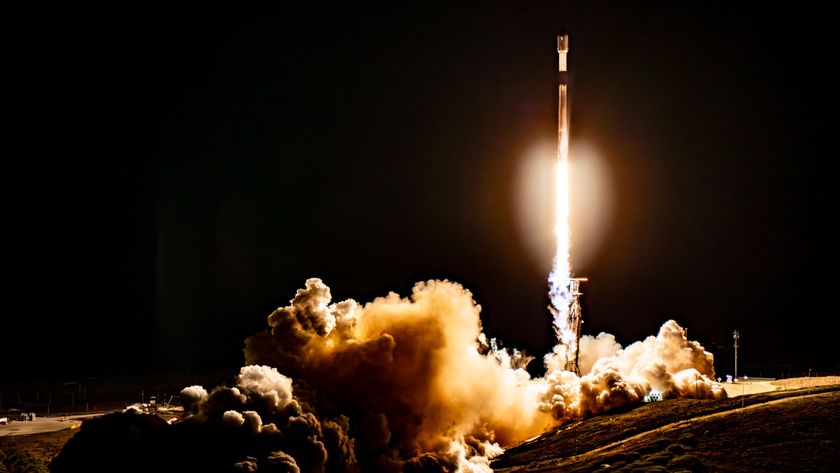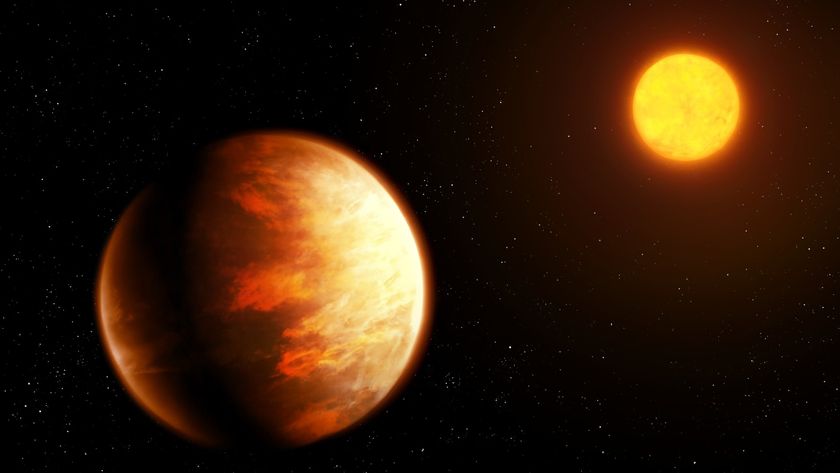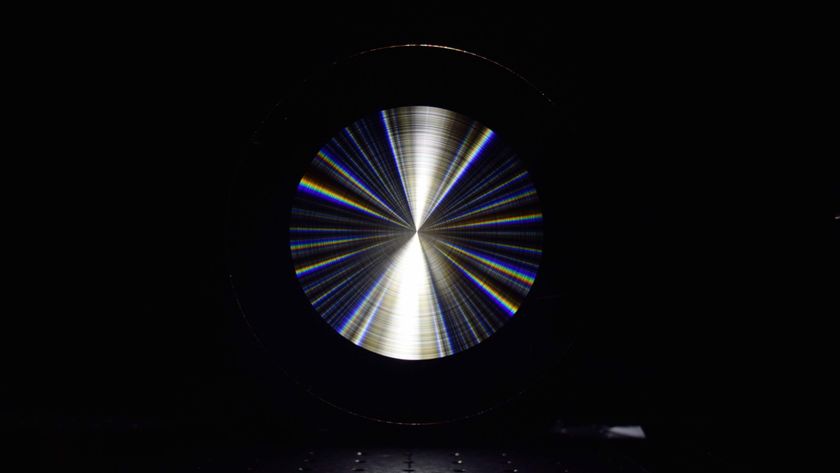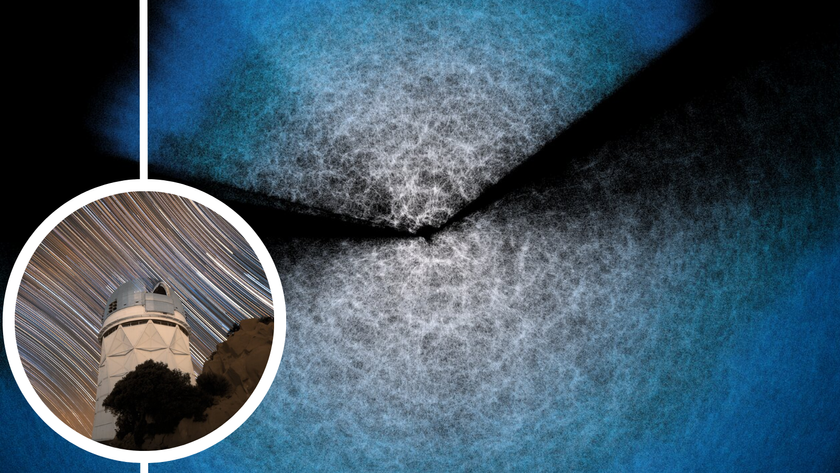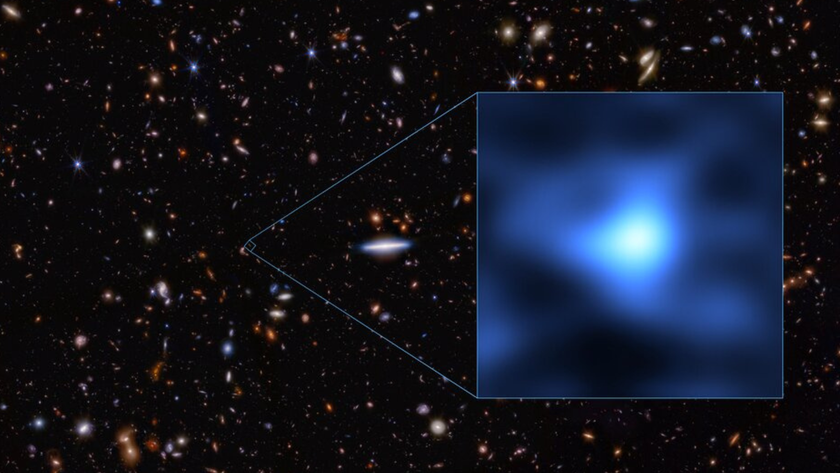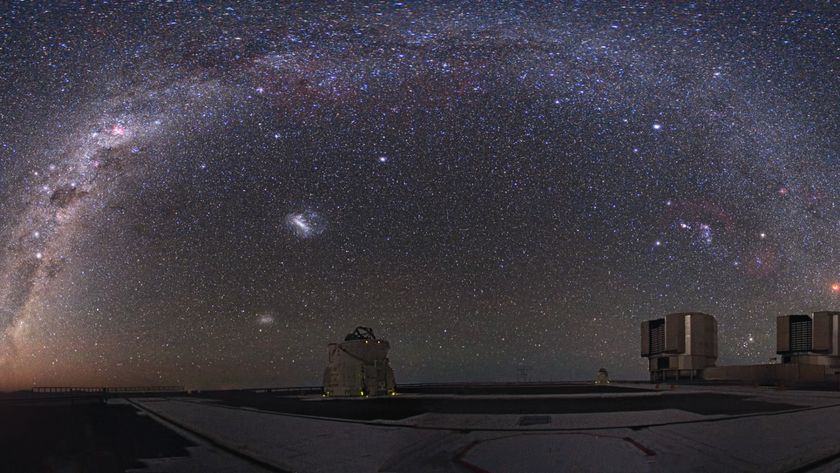Fastest-Growing Galaxy Cluster Discovered (Gallery)
Phoenix Cluster and Abell 2029 and Abell 2052
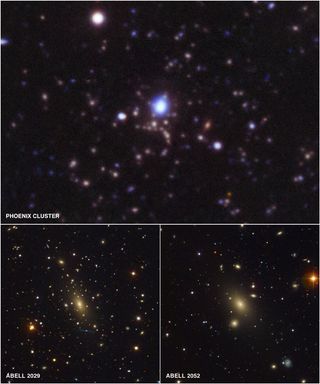
Optical (red, green, blue) and ultraviolet (blue) image of center of Phoenix Cluster, and optical images of the clusters Abell 2029 and Abell 2052. Top image taken with the NOAO Blanco telescope. Image released August 15, 2012.
Galaxy at Center of Phoenix Cluster
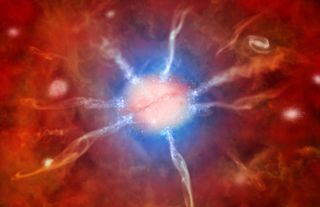
Artist's impression of the galaxy at the center of the Phoenix Cluster, which is forming about 740 new stars per year. Image released August 15, 2012.
Phoenix Cluster Microwave Image
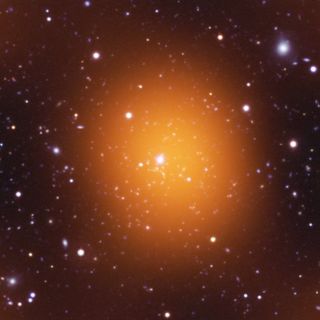
Microwave (orange), optical (red, green, blue) and ultraviolet (blue) image of Phoenix Cluster. Image released August 15, 2012.
Optical/UV/X-Ray Composite Image of Phoenix Cluster
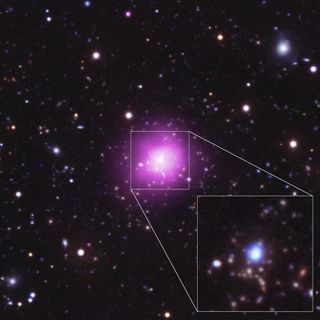
Optical/UV/X-ray composite view of the Phoenix Cluster, with a pull-out from the central region to optical/UV image. Image released August 15, 2012.
Cavities and Sound Waves in the Perseus Cluster
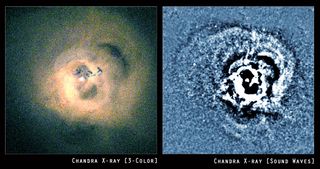
The Perseus Cluster is an example of a black hole blasting out energy and preventing gas from cooling enough to form stars at a high rate. Repeated outbursts from Perseus' central black hole, in the form of powerful jets, create giant cavities and produce shock waves that keep gas warm. This does not appear to be happening in the Phoenix Cluster, at least not to the same degree. Image released August 15, 2012.
South Pole Telescope
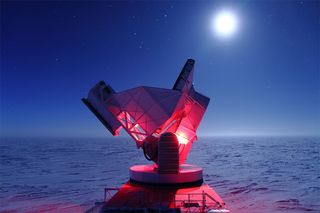
The South Pole Telescope (SPT) was used to study the Phoenix Cluster.
Chandra Spacecraft
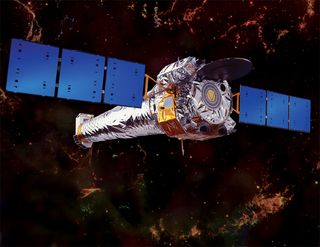
NASA's Chandra X-ray Observatory floats in space in this artist's concept. Image released August 15, 2012.
Get the Space.com Newsletter
Breaking space news, the latest updates on rocket launches, skywatching events and more!
Join our Space Forums to keep talking space on the latest missions, night sky and more! And if you have a news tip, correction or comment, let us know at: community@space.com.

Space.com is the premier source of space exploration, innovation and astronomy news, chronicling (and celebrating) humanity's ongoing expansion across the final frontier. Originally founded in 1999, Space.com is, and always has been, the passion of writers and editors who are space fans and also trained journalists. Our current news team consists of Editor-in-Chief Tariq Malik; Editor Hanneke Weitering, Senior Space Writer Mike Wall; Senior Writer Meghan Bartels; Senior Writer Chelsea Gohd, Senior Writer Tereza Pultarova and Staff Writer Alexander Cox, focusing on e-commerce. Senior Producer Steve Spaleta oversees our space videos, with Diana Whitcroft as our Social Media Editor.
